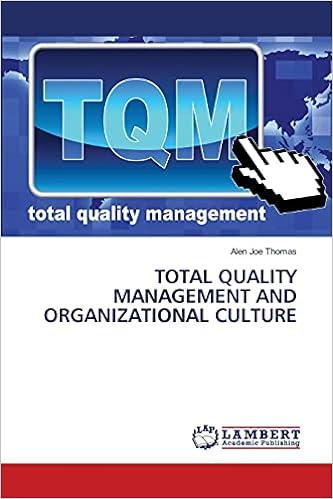Question
1. A company makes an error in 2018 that overstated its 2018 net income and discovers the error in 2020. When preparing its 2020 financial
1. A company makes an error in 2018 that overstated its 2018 net income and discovers the error in 2020. When preparing its 2020 financial statements, the company should: (3 points)a) Report a non-operating loss on its 2020 Income Statement that reduces 2019 net income.b) Ignore the error since it has probably corrected itself.c) Report a prior period adjustment on its 2020 Statement of Retained Earnings that reduces the January 1, 2020 balance of Retained Earnings.d) Report an extraordinary loss on its 2020 Income Statement that reduces 2020 net income.
2. On January 1, 2020, Buzzmore Company signed an agreement to lease equipment from Gavin Company. The term of the noncancelable lease is 5 years and requires annual lease payments of $7,194.48 on January 1, 2020, 2021, 2022, 2023 and 2024. Title to the equipment will pass to Buzzmore at the end of the lease term. The equipment has a value of $30,000 on January 1, 2020 and has an estimated life of 5 years with no salvage value. Buzzmore uses straight-line depreciation for its equipment and has an increment borrowing rate of 10%.Buzzmore made the following entry on January 1, 2020. This was the only entry Buzzmore made in 2020 related to the lease.Rent Expense$7,194.48Cash$7,194.48As part of the audit team that is conducting the 2020 audit of Buzzmores financial statements, a member of the audit team believes the lease should be recorded as a finance lease. Do you agree? If you agree, prepare the correcting entry (or entries) that should be made as of December 31, 2020 to correct Buzzmores accounts assuming the companys closing entries have not been made. (8 points)
3. A spreadsheet is provided that lists a series of errors that were discovered in January 2021 while examining the accounting records for 2019 and 2020. Enter the amounts into the blue boxes that would correct the reported net income for 2019 and 2020 due to each listed error. For example, if you believe the error overstated 2019 net income by $8,000, then enter -8,000 into the blue box in the 2019 column to reduce reported net income by $8,000. (14 points)

Step by Step Solution
There are 3 Steps involved in it
Step: 1

Get Instant Access to Expert-Tailored Solutions
See step-by-step solutions with expert insights and AI powered tools for academic success
Step: 2

Step: 3

Ace Your Homework with AI
Get the answers you need in no time with our AI-driven, step-by-step assistance
Get Started


